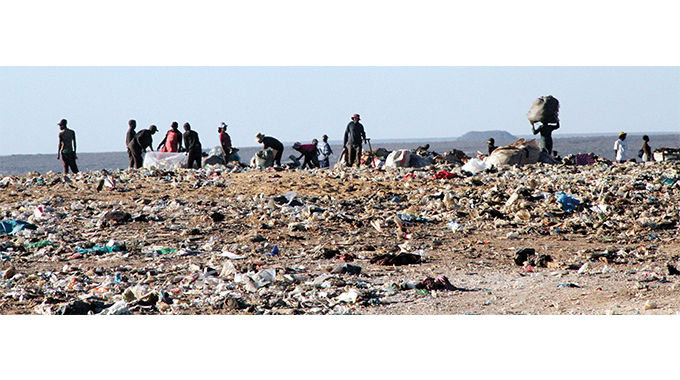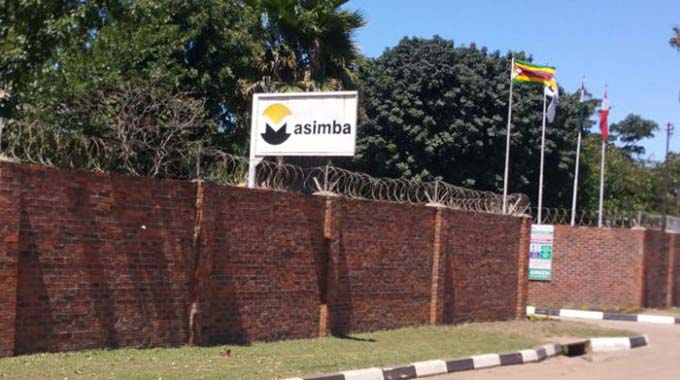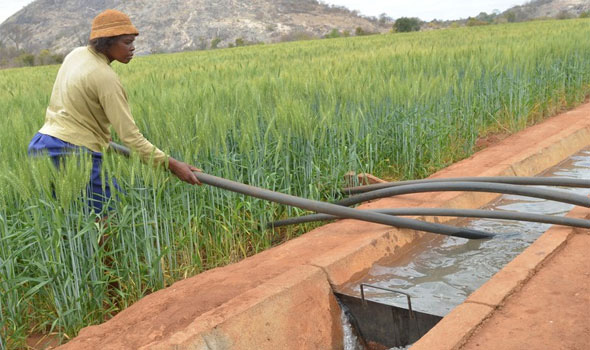3 000ha irrigation project for Chiredzi fine tuned
Land clearing in the Lowveld to pave way for the creation a 3 000-hectare greenbelt at Buffalo Range in Chiredzi district has been temporarily shelved to allow for the reorganisation of existing settlements and issuing of tenure documents to present settlers so they benefit first from the major programme.
Hundreds of settlers in the area earmarked for the greenbelt around Buffalo Range have no documented security of tenure and fear they might not benefit from the planned irrigation, hence the push to give them certificates of occupation before the project begins.
The thrust is in line with President Mnangagwa’s policy that nobody will be evicted from their land to pave way for irrigation development, though there will be reorganisation to allow smooth rollout and development of infrastructure such as canals.
Buffalo Range irrigation will be watered via a canal that draws water from the heavily underused Manjirenji Dam in southern Zaka with the canals passing through Buffalo Range.
Government hired a Chinese firm, China Nang Chang Engineering and local firm Fossil to undertake the project.
China Nang Chang will clear 2 000ha, while Fossil clears 1 000ha under the planned greenbelt. The two firms have already mobilised land clearing equipment to start work.
Chiredzi District Development Coordinator Mr Lovemore Chisema on Monday said land clearing at Buffalo Range had been temporarily stopped.
Mr Chisema said present settlers on the land needed guarantees that they will not be kicked off the land once it becomes irrigated.
“The settlers on the land earmarked for the irrigation scheme have no tenure documents and we have resolved to address that problem so that they don’t resist the project so we will give them certificates of occupation to guarantee that they will benefit from the irrigation scheme,” said Mr Chisema.
“So, the two contractors (China Nang Chang and Fossil) have not yet started work and their equipment is on site waiting for the nod to start work once the grey areas have been cleared.”
Mr Chisema said the local district lands committee will meet soon to address the issue of tenure documents for the existing settlers.
Land to be covered by the greenbelt project was also peri-urban, requiring that beneficiaries get certificates of occupation and not just offer letters.
“The district lands committee will soon meet to deliberate on the issue of Buffalo Range settlers so that we give them security of tenure documents so they do not continue resisting the irrigation project,” he said.
“We have said that no one will be kicked out but we have to reorganise their settlements so that the irrigation project is smoothly rolled out.”
Mr Chisema expressed optimism that the greenbelt will start soon, making the area a major agricultural hub.
The Lowveld is bisected by perennial rivers such as Runde and Mwenezi, while its good soils are ideal for crop production under irrigation. Masvingo’s major dams including Lake Tugwi-Mukosi and Lake Mutirikwi were also built with requisite conveyancing infrastructure to irrigate swathes of land in the Lowveld.
Only a small fraction of the Lowveld is currently under irrigation and the irrigation potential of existing dams can support many more farmers.
Government has conceived the Lowveld irrigation development master plan, which envisages creation of a greenbelt stretching from Mwenezi to the west to Checheche to the east.
Besides industrial crops such as sugarcane that predominates the Lowveld currently, plantation crops such as citrus and cereals like maize and wheat are also envisioned under the irrigation master plan.
The plan also envisages growing of lucerne grass in Chilonga and setting up of agroprocessing factories and infrastructure such as roads and rail to export proceeded agricultural products which dovetails with Vision 2030.
A much bigger dam, Runde-Tende, set for the confluence of Runde and Tende rivers in southern Chivi, is also planned under the irrigation master plan that envisages a greenbelt straddling over 200 000ha across the length and breadth of the Lowveld.-The Herald










